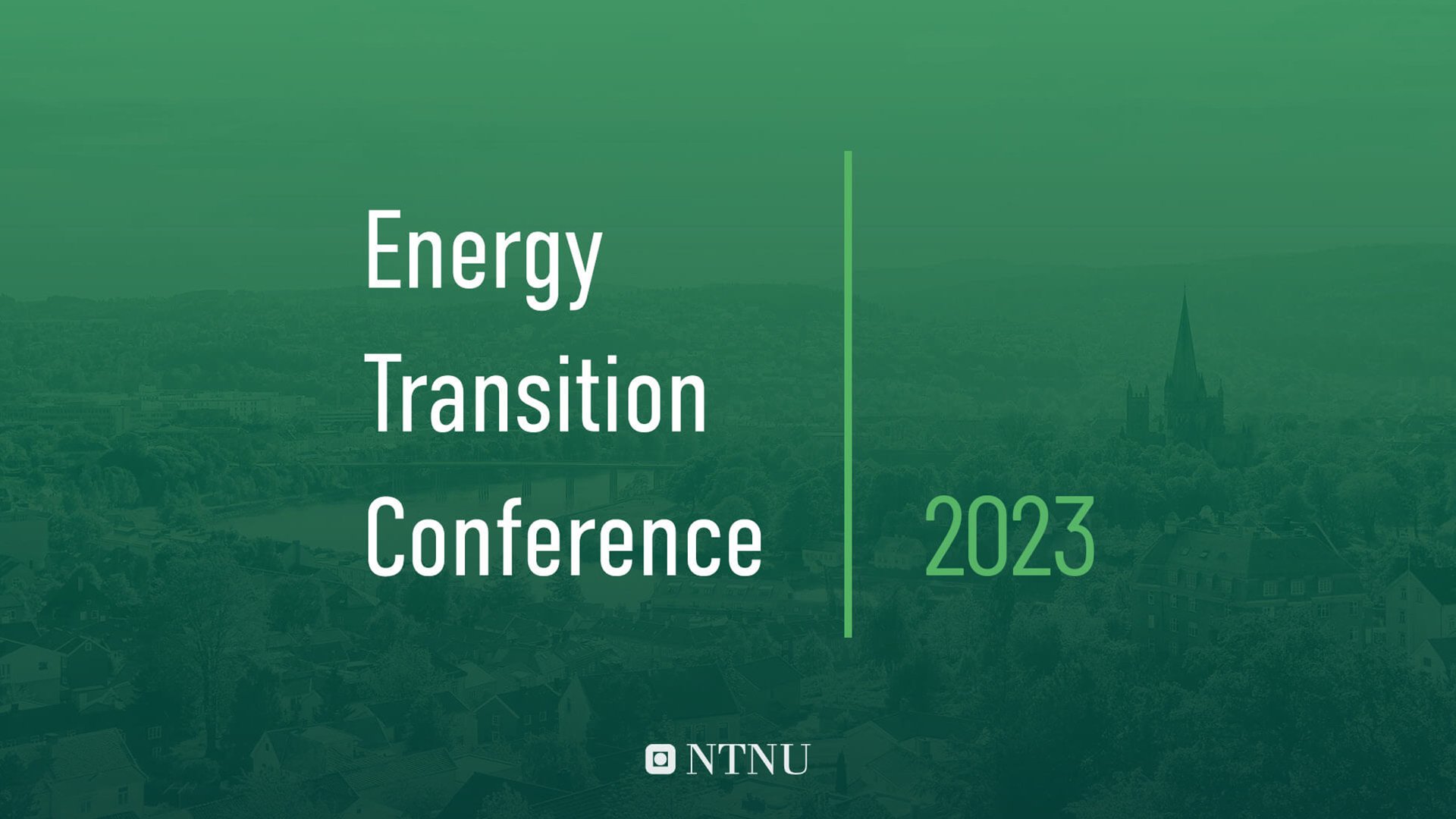Gain strategic insight into the world of global energy - markets, geopolitics, research, upcoming industry transformations, and current trends, as we continue our transition away from carbon-intensive energy systems.
Welcome to the NTNU Energy Transition Conference 2023 in Trondheim March 21. This year's conference theme is ‘Crisis, Crossroads, and Courage’. We are excited to bring together experts from around the world to discuss important topics on our path to a zero-emission society. The event is part of the NTNU Energy Transition Week, which also includes the Trondheim Tech Port Conference, a public assembly (Trøndersk Klimatoppmøte), dedicated workshops, and smaller networking events.
The program focuses on three key themes i) transitioning industries and global trade, ii) the role of infrastructure and storage, and iii) future technologies and lifestyle changes. Our speakers and panelists will share their insights on the latest developments in these areas, and provide valuable perspectives on the road ahead.

Date: March 21, 2023
Time: kl. 10:00 - kl. 17:45
Place: Olavshallen, Trondheim
The conference is free and open to everyone. The event will also be streamed to DN.no and you can follow the whole event online.
Preliminary Program:
09:30 - 10:00 Mingling and check-in
10:00 - 10:45 Introduction and keynotes
- Welcome by NTNU-rector, Anne Borg and Professor Asgeir Tomasgard
- Keynote from Maroš Šefčovič, Vice President, Interinstitutional Relations and Foresight, European Commision
10:45 - 12:15 Session I: Transitioning Industries and Global Trade
Global supply disruptions, high prices, geopolitical instability, and the continued transition away from carbon-intensive energy systems have led to an Energy crisis in Europe in 2022. Global trade patterns are affected both by the geopolitical situation and climate related measures like carbon border adjustment mechanisms. What could this mean for renewable energy, upcoming industry transformations, fuel substitutions, CCS and CO2-removal? Looking at international companies and global trade, this session aims to better understand the situation and how we better can align goals.
- Daria Taglioni, Research Manager, Trade and International Integration, Development Economics, The World bank
- Helge Haugane, Senior vice President, Gas & Power Marketing, Midstream and Processing, Equinor
- Dr. Marie Jaroni, Head of the Decarbonization and Sustainability, Thyssenkrupp Steel
- Graham Holman, Director at Sumitomo Corporation Europe Ltd.
- Panel & audience discussion
12:15 - 13:15 Lunch
13:15 - 14:45 Session II: The Role of Infrastructure and Storage
Almost overnight, energy security became a major concern in the short term, but also so for the whole energy transition. Major infrastructure projects got halted, some shut down or even blown up impacting the global market. Can critical infrastructure become more resilient and how will it have to be monitored? Is repurposing existing infrastructure – here mainly pipelines for hydrogen transport – a sustainable option or do we even need to build new? How does storage factor into these global markets, for both CO2 and fuels? This session aims to shed light over what solutions exist, what emerging technologies should we be looking at, and how we can foster development in turbulent times.
- Frode Leversund, CEO of Gassco
- Professor Magnus Korpås, NTNU
- Andreas Kuhlmann, DENA
- TBA, Statkraft
- Panel & audience discussion
14:45 - 15:30 Short break
15:30 - 17:00 Session III: Future Technologies and Lifestyle Changes
The energy transition and path towards a zero-emission society depends both on new transformative technological solutions and lifestyle changes. In this session we explore some of these and their interfaces. With climate change and harsher weather conditions, solutions for how to heat and cool our buildings are increasingly important. For example, new mega-cities are sprouting in developing parts of the world, raising new ideas for transport, energy efficiency, flexible consumers, sector coupling and infrastructure. How does citizen engagement factor into the equation, in terms of policy and behavioural adaptation? These are some of the aspects the conference aims to take a closer look at.
- Professor Linda Steg, University of Groningen
- Matt Ries, DC Water
- Alexandra Bech Gjørv, SINTEF
- Panel & audience discussion
17:00 - 17:30 Dialogue Session and Q/A
- TBA
17:30 - 17:45 End of Conference
